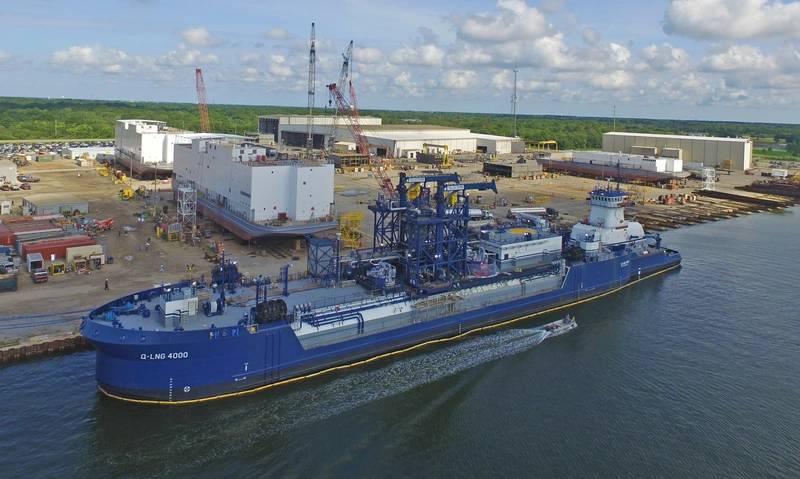US' First LNG ATB Ready for Service
Q-LNG Transport and Shell Trading (US) Company announced Wednesday that the first offshore liquified natural gas (LNG) bunkering articulated tug and barge (ATB) in the United States, the Q-LNG 4000 is ready for operations along the southeast U.S. coast.
Built by Halter Marine in Pascagoula, Miss., the ATB is designed to provide ship-to-ship transfers of LNG to vessels utilizing LNG and ship-to-shore transfers to small scale marine distribution infrastructure.

“Shell has an ambition to be a net-zero emissions energy business by 2050 or sooner, in step with society, and we are working hard to deliver the kind of solutions our customers need now to help them decarbonize,” said Karrie Trauth, General Manager for Shipping and Maritime, Americas. “LNG is an important part of the solution today, and I’m proud that this vessel will effectively double the number of LNG bunker vessels in the U.S. and making it possible for us to continue to help others accelerate their own transition.”
The barge joins Shell’s existing global network of six LNG bunker vessels to meet the growing global demand for cleaner maritime fuels.
Shane Guidry, CEO of Q-LNG, said, “All of my companies, including Q-LNG, are focused on, and will continue to do our part to design, build and operate vessels that will assist with the quest to decarbonize.”
Compared to heavy fuel oil, LNG reduces greenhouse gas emissions by up to 21% for two-stroke engines and up to 15% for four-stroke medium speed engines as well as significantly reducing pollution from nitrogen oxides and particulate matter compared to conventional marine fuels. This fuel type also meets IMO 2020 sulphur regulations.
Related News



